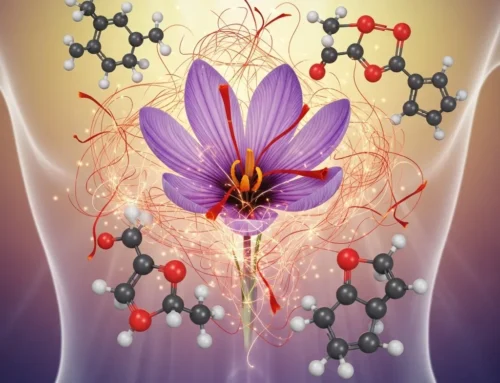 The Benefits of Saffron for Eyes
The Benefits of Saffron for Eyes
Saffron for Eye Health
Saffron is an extraordinary herb, and most of us are somewhat familiar with its amazing properties. This time, we want to share some highly valuable information about the benefits of saffron for the eyes. If you suffer from any eye conditions, reading this content is essential for you.
Health Benefits of Saffron for Eye Care
Saffron, due to its high content of antioxidants and other compounds beneficial for eye health, acts as a natural eye booster. According to research conducted by doctors and scientists in recent years, individuals suffering from eye diseases have found relief in a relatively short time through saffron consumption, aiding the healing process.
Now, let’s take a closer look at some eye conditions where saffron has been shown to have a positive impact, so you can understand more about the properties of saffron for eye health.
Saffron’s Impact on Macular Degeneration (AMD)
AMD is a disease that typically affects older individuals due to aging. This eye condition is often known as a vision loss disease, leading to a reduction in central vision. Macular degeneration usually occurs in elderly people, though genetic and hereditary factors also play a role in its onset.
The result of AMD is a loss of central vision in the cornea of the eye. In the initial stages, there may be no symptoms, but as time passes, the vision in one or both eyes gradually worsens. In some cases, individuals might experience total vision loss, making it challenging to perform daily tasks. Sometimes, people with AMD may even suffer from visual hallucinations, which are not associated with psychiatric diseases.
Reducing Cataract Risk with Saffron
Another benefit of saffron for eyes is its ability to support cataract recovery. This condition causes cloudiness in the lens of the eye, which leads to blurry vision over time. However, cataracts are not generally considered a serious health threat, as they can often be treated with surgery, removing the condition altogether.
Common Causes of Cataracts
- Old age, which is one of the most common causes of cataract development
- Severe eye injury or trauma to the lens
- Extended exposure to sunlight and UV rays
- Long-term use of medications such as corticosteroids
- Thyroid disorders and congenital defects
Washing Eyes with Saffron
In ancient times, people often washed their eyes with saffron solutions, believing it would strengthen eyesight. However, this practice has been debunked by doctors and specialists. Saffron can cause eye redness, inflammation, and even burning or itching, which may sometimes lead to serious eye infections.
To benefit from saffron’s properties for eye health, it is recommended to consult with an experienced doctor, who can prescribe saffron-containing remedies that are safe for the eyes.
Saffron and Rosewater for the Eyes
In addition to saffron’s eye health benefits, rosewater has been recommended for eye care since ancient times. Unlike saffron, rosewater does not pose any danger when applied directly to the eyes. Some traditional medicine experts suggest that rosewater can help reduce eye inflammation and redness.
If you experience tired and dry eyes throughout the day, saffron-infused rosewater is the best option. Using rosewater is one of the most effective methods for relieving eye fatigue and irritation, providing immediate relief from discomfort.
Potential Risks of Direct Saffron Use for Eyes
When using saffron directly on the eyes, certain risks exist:
- irritation and burning: Due to its strong pigments, saffron can irritate the eyes, causing a burning sensation that may be temporary or, in some cases, prolonged.
- allergy: Some individuals may have allergies to saffron. It is important to ensure that you do not have a sensitivity before using it on your eyes.
- infection: In severe cases, direct saffron application can lead to infections, which can cause long-term damage to the eyes and affect vision.
- corneal damage: Direct saffron use could damage the cornea, the most crucial part of the eye, leading to permanent vision loss.
- medication interactions: Saffron can interfere with certain medications, particularly blood thinners. Consult your doctor before using saffron if you are on medication.
Conclusion
Saffron is not only a plant known for its beauty and the aroma it imparts to food, but it also has numerous health benefits, particularly for eye health. While saffron has shown positive effects for eye care, misuse can lead to eye-related issues, so always consult with a healthcare professional to ensure safe usage. Make sure to adjust the amount of saffron used according to medical advice to avoid any potential complications.







Get Social